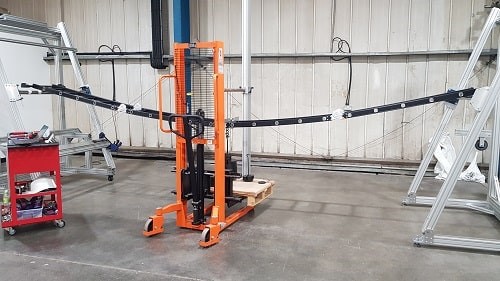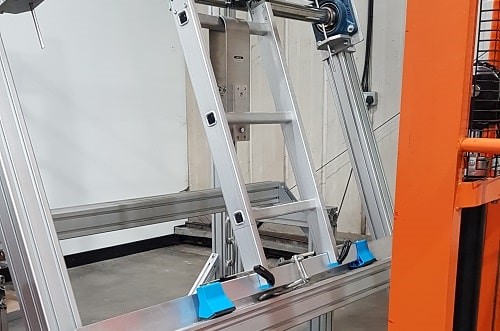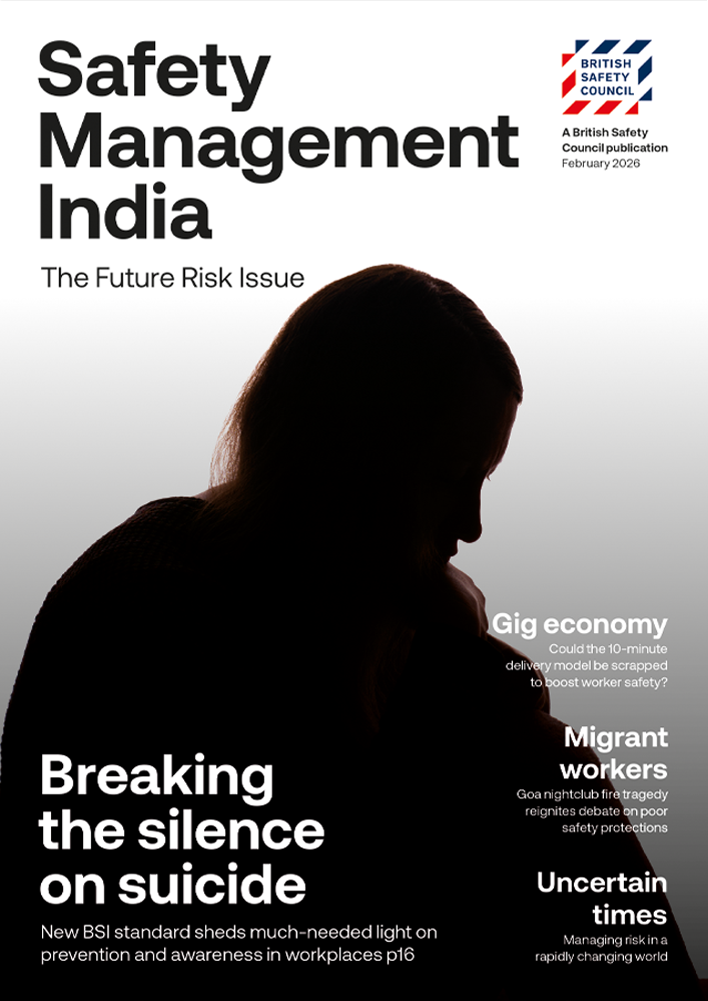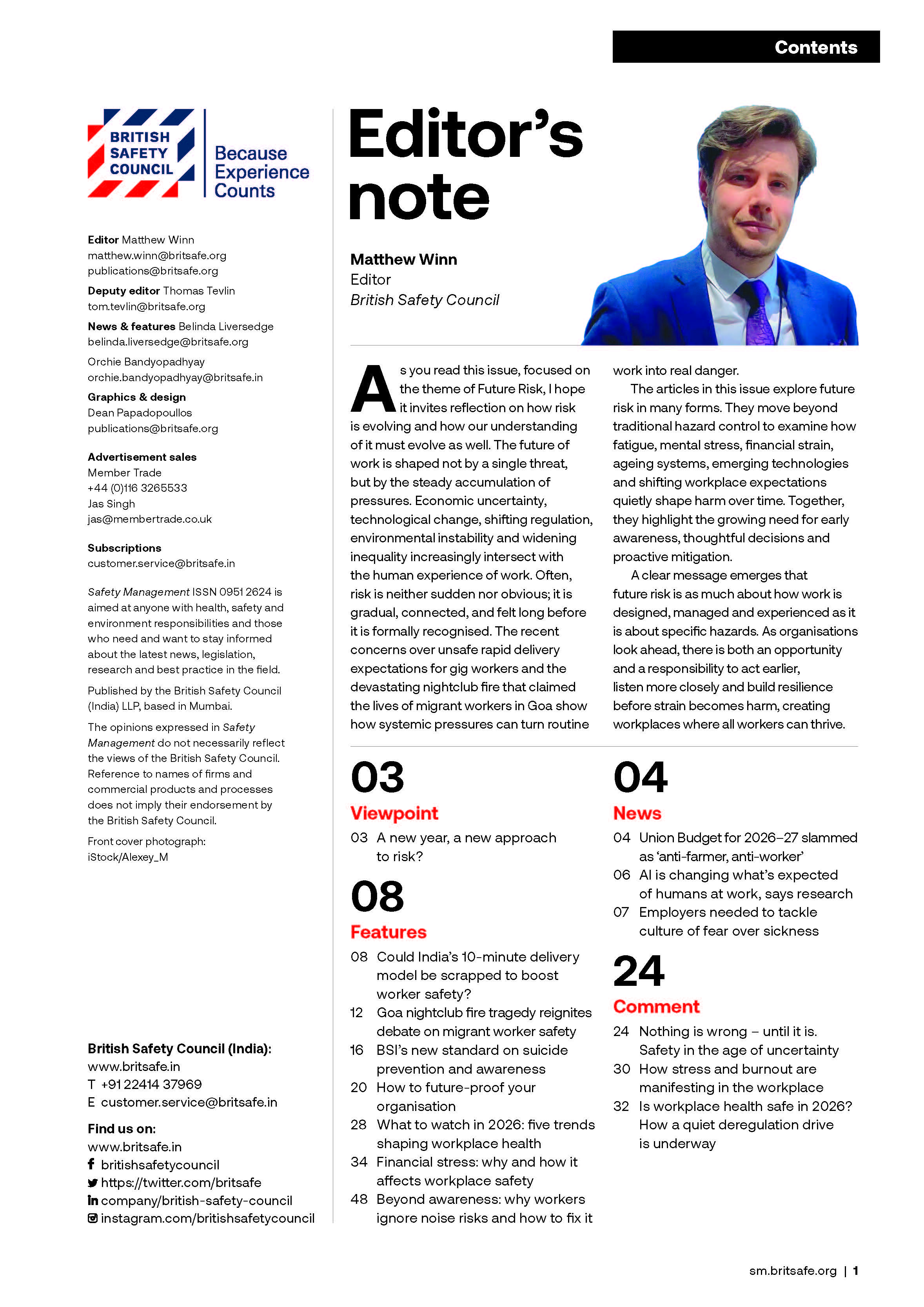With tests showing that 70 per cent of multi-purpose ladders available to purchase in the UK via online platforms fail to meet minimum safety requirements designed to keep users safe, the Ladder Association is calling for the UK government to close loopholes allowing their sale.
Opinion
We need UK government action to halt the sale of unsafe ladders on online platforms
The Ladder Association is doubling down on its efforts to raise awareness that unsafe and potentially dangerous ladders continue to be sold via online platforms to unsuspecting consumers in the UK.
The Association’s recent market surveillance study, part of our ongoing ‘Step Up to Safe Ladders’ campaign, found that 70 per cent of the commercially-available multi-purpose ladders they tested failed to meet the minimum safety requirements designed to keep users safe. Those products that failed include the top three products listed on each of the world’s best-known online retailers, Amazon and eBay. Worryingly, all samples tested that were purchased online from Amazon and eBay as part of this study failed the safety tests, were non-compliant and were unsafe to use.
 Photograph: Ladder Association
Photograph: Ladder Association
Worse still, the research found that all of the failed ladders were advertised as ‘compliant’ with the product standard (EN 131-4), either on the product listing, product packaging or product labelling, in a deliberate attempt to mislead consumers. Further evidence was found that identical substandard products are being sold with different product names, seller names and branding, giving a false impression of greater product variety for consumers.
No legal obligation
Online marketplaces have surged in popularity in recent years and are used by nine in 10 adults who use the internet². As it stands, online marketplaces selling products supplied by third-party sellers, have no responsibility for preventing unsafe goods being sold on their platforms, and no legal obligation to inform consumers if they have purchased unsafe goods.
With online platforms, sellers are based worldwide. While Trading Standards can investigate and take appropriate enforcement action against UK-based businesses, those operating outside the UK do not exist in current product safety law. The sellers are virtually anonymous, making it almost impossible to hold them to account. The current legal framework gives rogue manufacturers, suppliers and sellers based anywhere in the world, free rein to sell unsafe, and in worst cases deadly, products direct to unsuspecting consumers in the UK without threat of repercussion.
 Photograph: Ladder Association
Photograph: Ladder Association
While there are manufacturers producing ladders that meet the safety standards, the study showed that a significant number of ladders available on the market – and sold by the country’s biggest online platforms – fall well below basic safety requirements. To be certain they’re as safe as they should be, ladders should be manufactured to comply with product standard EN 131. It was against the most safety-critical requirements of this standard that the sample products were tested at the UKAS-accredited independent Test & Research Centre in Soham, UK.
Unsuspecting consumers
Peter Bennett OBE, executive director of the Ladder Association, commented: “Making sure consumers are safe is our number one priority and we are committed to raising awareness of potentially harmful ladders. Working at height can be risky enough, without the additional danger of shoddy ladders – every 11 minutes in the UK, someone attends A&E after sustaining an injury involving a ladder². A fall from height can cause life changing injury, and in some cases, can even be fatal.
“We are aware of below-standard ladders being sold to unsuspecting consumers, particularly via online platforms, who pass the sole responsibility for product safety to the seller. But, if the seller does not care and has no threat of legal consequence due to being virtually anonymous and based overseas, our current legal framework is allowing people’s lives to be put at risk. This must stop.
“We must stress there are good quality and safe ladders available online and in physical stores – not all multipurpose ladders are unsafe. However, with increasing price pressure and the ‘Amazon effect’ on consumers and businesses, which puts price and convenience above safety, the market is far from a level playing field.
“The Ladder Association kicks off 2024 with renewed calls for urgent action from the UK Government to make regulatory changes to hold online platforms accountable for ensuring the products they sell are compliant and safe to use. We’re also urging people to take extra care when buying ladders online – do your research; read the reviews and when you get it, check the ladder itself, along with all instruction manuals and labels. And if you think the ladder is unsafe or dangerous don’t use it!”
 David Gray is Chairman of the Ladder Association. Photograph: Ladder Association
David Gray is Chairman of the Ladder Association. Photograph: Ladder Association
The Ladder Association is the voice of the industry and promotes the highest standards and competence, while working with major bodies including the Health and Safety Executive. The Association harnesses its own expertise along with that of its member companies to support technical excellence, safety and best practice in the interests of ladder users everywhere. All Ladder Association members are required to make or supply ladders that meet the current product standard.
Ladder Association advice on buying safe ladders
- Take some time to research before you buy. You can carry out a quick online check of the company or brand to check their business location and visibility in the market. If they don’t have a UK/EU address then it can make it much more difficult to contact them if you have an issue after you buy.
- Check product reviews. These are a great way of hearing first-hand from other consumers and often give valuable insight into the product quality, mainly if it falls below standard. But beware, some companies and brands post fake positive reviews, so read them carefully, note where the reviewer is based or how many reviews they have previously posted.
- Don’t make decisions solely on price. But, if something is very cheap, you should question why. That’s not to say it’s poor quality, but it’s certainly a prompt to make you do a bit more homework. Genuine quality products can cost more to manufacture due to the enhanced testing and cost of materials, but equally, a higher price doesn’t necessarily mean quality.
- Remember, online platforms take little or no responsibility for the quality or safety of the products sold on their platforms and place the responsibility for safety firmly with the seller. Don’t assume product safety and compliance checks have been carried out by them before they placed them online for sale.
- Don’t assume physical stores sell only safe products. They could knowingly – or unknowingly – be stocking products that don’t meet product standard EN 131. Check labelling for print quality or spelling errors, check product quality as best you can, and speak to the retailer if you have any questions.
- Avoid ladders that are CE or UKCA marked. Despite what you might think, ladders cannot be CE or UKCA marked, so avoid any that bear those markings.
- Buy from a Ladder Association member. Members are committed to high standards of safety, and by joining the Association, they pledge to only make or sell ladders that comply with EN 131 (or international equivalents) and are certified by a third-party Conformity Assessment Body.
- When you receive your ladder, check it. Check the product, the instruction manual (every ladder should come with one) and the labelling on the ladder itself.
- If you think the ladder is unsafe, dangerous or not made to standard, don’t use it! For more information on the ‘Step Up to Safe Ladders’ campaign and to view all three of the Ladder Association’s research reports, please see: ladderassociation.org.uk/step-up/
David Gray is Chairman at Ladder Association
References:
- National Audit Office – Protecting consumers from unsafe products: org.uk/wp-content/uploads/2021/02/Protecting-consumers-from-unsafe-products.pdf
- APPG on Working at Height Report ‘Staying Alive: Preventing Serious Injury and Fatalities while Working at Height’: info/wp-content/uploads/2020/03/Staying-alive.pdf
OPINION





